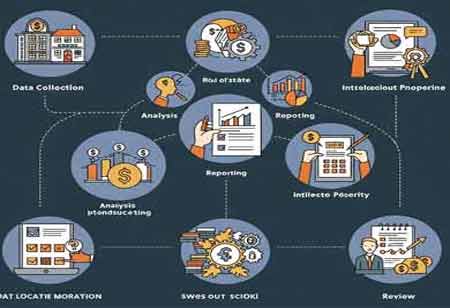CLOSE
Specials
- RegTech Europe
- Financial Risk Management APAC
- Investment Banking APAC
- Corporate Advisory APAC
- Regtech APAC
- Escrow Services
- Digital Banking Latam
- Trading Solutions APAC
- Treasury Management Europe
- CPA Firms Canada
- Financial Risk Management Europe
- Mortgage Broker
- Financial Licensing Europe
- RIA Advisory Europe
- FinTech Canada
- Financial Asset Management APAC
- Investment Banking Canada
- Payment Solution
- Lending Mangment Latam
- Payment Solution Europe
- Broker Dealer Firms Canada
- Alternative Investments Canada
- Financial Fraud
- Investment Management Latam
- Financial Health Europe
- Lending mangment
- Financial Marketing
- Proprietary Trading Europe
- Wealth Management
- FinTech
- Financial Brokerage Firm APAC
- Investment Advisory Europe
- Investment Advisory APAC
- Wealth Management MENA
- Claim Adjusting
- Claim Adjusting APAC
- Mergers and Acquisitions Consulting APAC
- Equipment Financing
- CPA Firms
- Mergers and Acquisitions Consulting Canada
- Investment Services
- Valuation Services Canada
- Wealth Management APAC
- Broker Dealer Firms
- Debt Collection Agencies
- Mergers and Acquisitions Consulting
- FinTech Europe
- Fintech Latam
- Financial Planning / Retirement
- Investment Management
- Financial Compliance
- Digital Banking Europe
- CFO Services
- Debt Collection Agencies Europe
- Wealth Management Europe
- Mergers and Acquisitions Consulting Europe
- Financial Restructuring Europe
- Financial Portfolio Management Canada
- Business Loan
- Payment and Card Latam
- Wealth Management Latam
- Mergers and Acquisitions Consulting Latam
- Tax Advisory Canada
- Trading Solutions Europe
- Alternative Investments
- Digital Insurance Europe
- Investment Services Latam
Weekly Brief
×Be first to read the latest tech news, Industry Leader's Insights, and CIO interviews of medium and large enterprises exclusively from Financial Services Review
Thank you for Subscribing to Financial Services Review Weekly Brief
Payment Gateway and Payment Processor: What You Need to Know
You are likely familiar with the terms "payment gateway" and "payment processor" being used interchangeably

By
Financial Services Review | Wednesday, June 26, 2024
Stay ahead of the industry with exclusive feature stories on the top companies, expert insights and the latest news delivered straight to your inbox. Subscribe today.
Payment gateways serve to gather and authenticate a customer's credit card information. They function as the digital equivalent of a physical point-of-sale terminal chip reader. Their primary objective is to validate a transaction, and they typically feature a payment page where customers can securely input their details.
Fremont, CA: You are likely familiar with the terms "payment gateway" and "payment processor" being used interchangeably. Although both are crucial in handling online transactions, the difference between the two can be unclear, particularly for those new to the e-commerce industry.
Payment Gateway
Payment gateways serve to gather and authenticate a customer's credit card information. They function as the digital equivalent of a physical point-of-sale terminal chip reader. Their primary objective is to validate a transaction, and they typically feature a payment page where customers can securely input their details.
The gateway's integration into the website can be seamless (a white-label payment gateway), or the checkout process may redirect customers to the gateway's site to finalize the transaction before returning them to the merchant. This setup is known as a third-party payment gateway. Payment gateways are commonly provided as a complimentary service, as the company levies charges for the payment processing aspect of the transaction.
After credit card information is submitted, the payment gateway forwards it to the payment processor for verification purposes. Instead of directly processing the transaction, the payment gateway ensures the card's validity, much like a point-of-sale terminal verifies the chip of a physical credit card.
Payment Processor
A payment processor acts as a communication intermediary, facilitating the exchange of messages between your business, your customers, their bank accounts, and your bank account.
Regardless of the nature of your business, having a payment processor is essential. Additionally, many payment processors offer POS systems for brick-and-mortar stores to assist in gathering credit card details during transactions.
Numerous enterprises utilize a payment processor linked to their merchant account, ensuring direct delivery of all payments. Alternatively, a third-party payment processor can handle payments for multiple businesses, offering a more efficient process with reduced fees.
The roles of a payment gateway and a payment processor differ. Payment gateways are crucial for validating a customer's credit card details, whereas payment processors manage the communication in the background, ensuring that payments are successfully deposited into your account. Certain companies, like Stripe, offer both of these services.
In general, online stores will typically require both solutions, whereas physical retail stores usually only need a payment processor.

Copyright © 2025 Financial Services Review. All rights reserved





